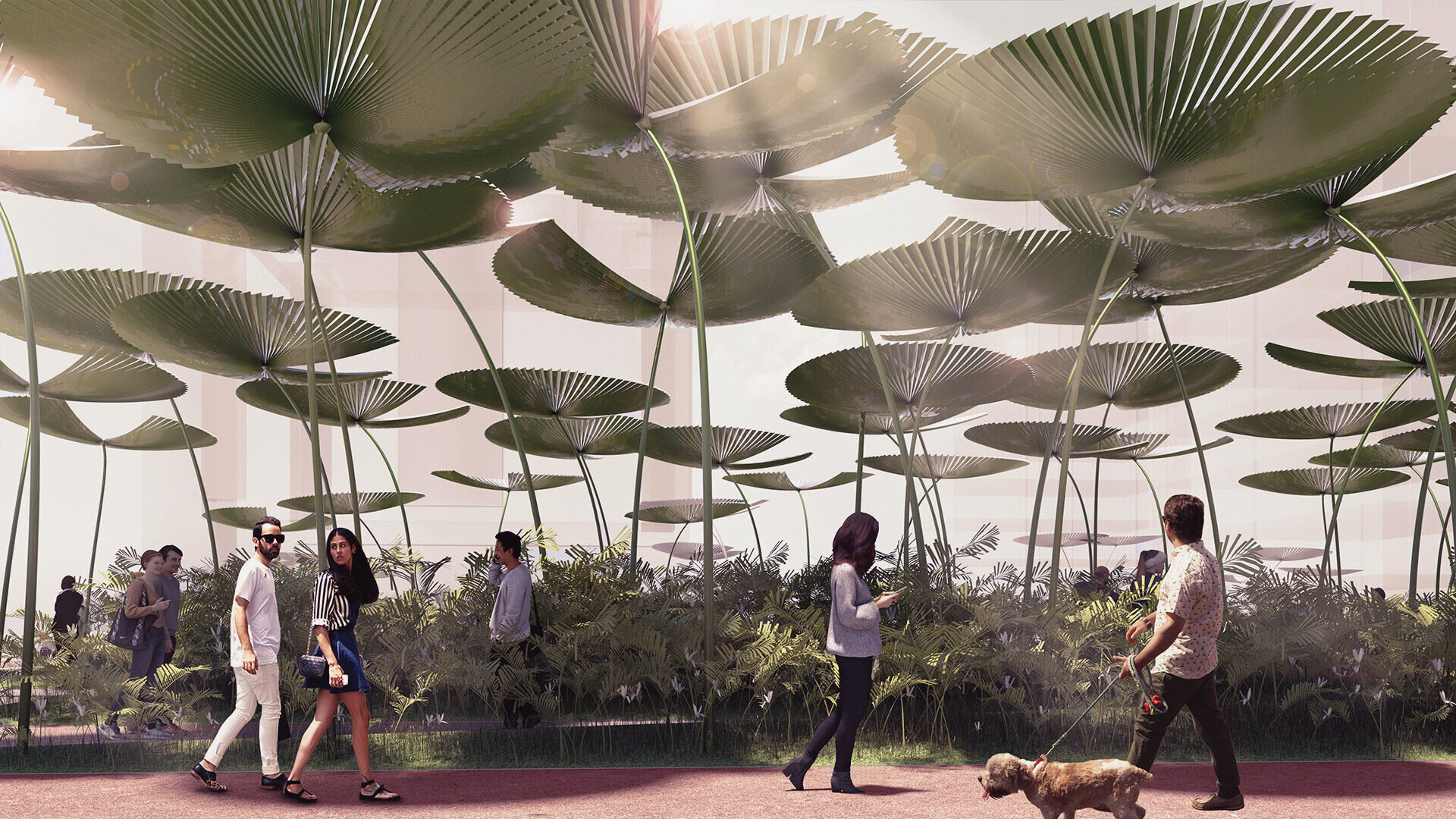the world's temperature is a few decades away from turning our lives into misery.
we are already facing the consequences of concrete jungles and deforestation in urban areas. it is not a solution to run away!
do we still have the chance to save the world? or is it too late?
cities are getting warmer day by day. The effects of urban heat islands will probably be equivalent to about half the warming caused by climate change by the year 2050 which is assumed to affect about two-thirds of the world population that lives in urban areas. An easy solution like planting a tree for shade is not as simple as it seems. The Emirate’s water resources are also under 'extreme stress' which has depleted over recent decades due to economic development, agriculture, and population increases. The urban areas are relying on desalinated and treated water supplies. “Leafy” steps in at this point, -an artificial garden made of modular, kinetic, thermo-bimetal, flabellate umbrages with a shape reminding the date palm leaves- to maintain a sustainable environment for actual vegetation and plants in the near and far future, providing sufficient shade and water, along with creating awareness about the conscious use of water and reminding the legacy of planting more trees.
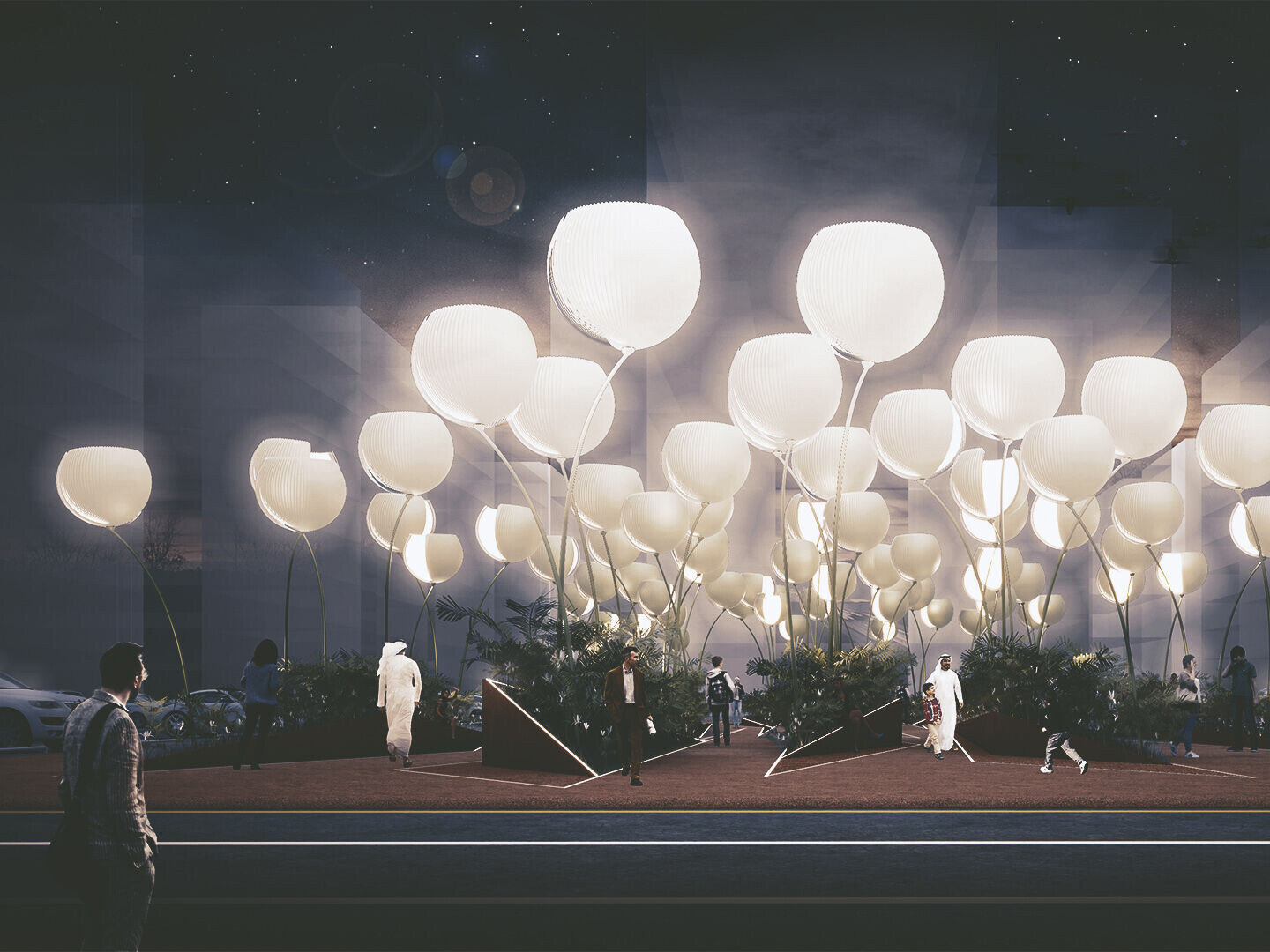
building density, paved, impermeable and dark surfaces, lack vegetation, the waste heat of cooling, fuel-based transportation... in short terms urbanization defects and changing climate feed on each other exacerbating the effects of temperature rises globally, causing indoor and outdoor spaces to suffer from excess heat and reduce comfortable public use.
“leafy” is a cluster shading element system, consisting of artificial trees of several dimensions with convex leaves that reflect sunlight and UV radiation during the day and collect condensation and humidity at dawn, taking the measurements for a base of a sustainable microclimate that supports an actual landscape to thrive.
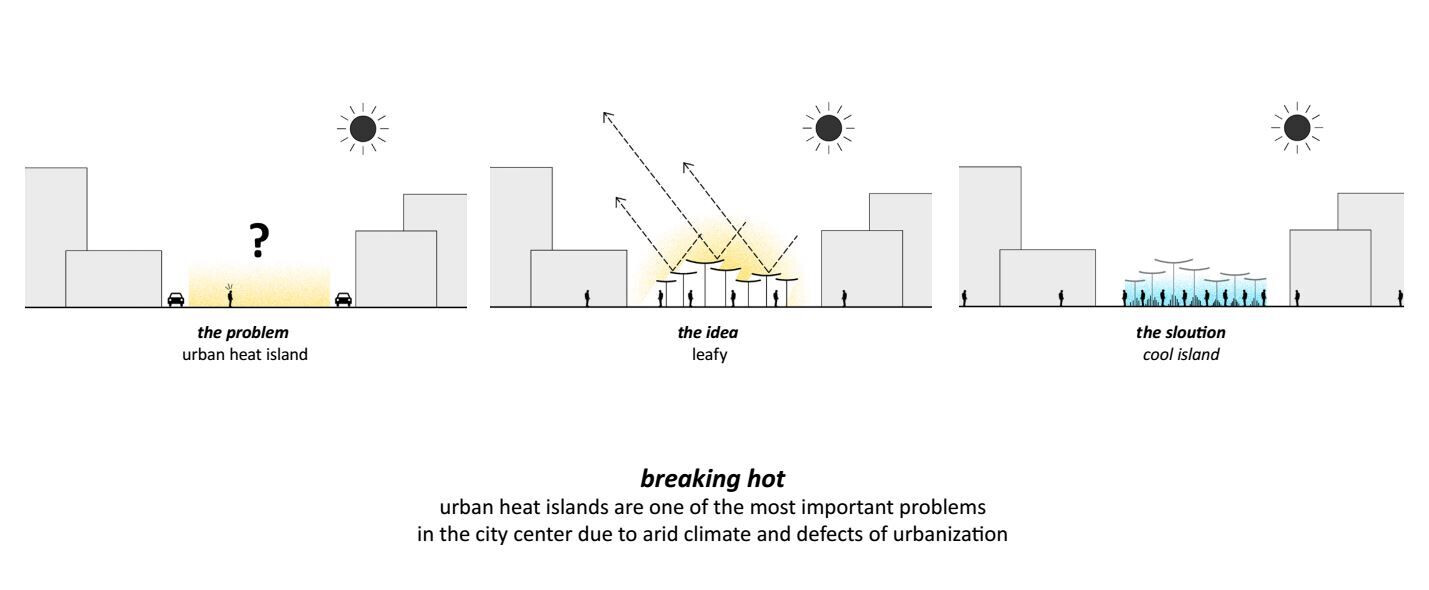
while the elements of “leafy” protect the ground level from higher temperatures, the dune-shaped base offers a platform for local plants and vegetation, helping to generate a hybrid “cool” oasis where people can chill and freshen up, a breathing space during lunch breaks or city tours.
how can we deal with the heat island effect, which makes it impossible to live and hang around in the daytime, number one in the major problems of the city that occurs in most of the empty plots and non-green spaces?
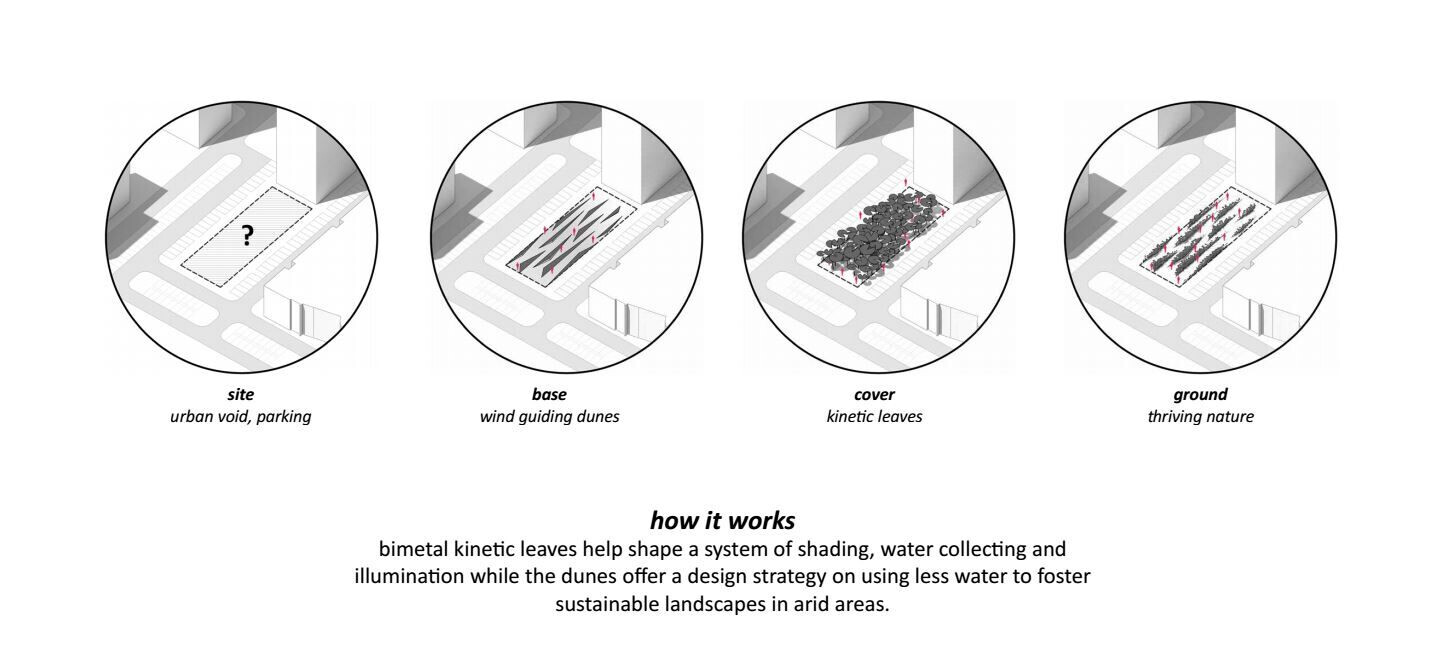
a simple workflow is theorized to assist the desired solution. Metals with different properties are bonded together to react accordingly to the rising and falling temperatures that make the blades of leaves expand at noon, forming canopies and contract at night allowing wind to flow through. Thermal expansion is not only used to create a life-like movement of plants naturally reacting to the sun within the circadian rhythm but also to transform it into a natural condensation and precipitation collector.
as the thermo-bimetal leaves direct daily condense water to the stem, -like a reversed photosynthesis phase- the actual plant roots stay hydrated and shaded enough to grow happily. As evapotranspiration occurs the abaxial surface of the bimetal leaves holds water molecules to create micro rain. And so, a hybrid cycle of life is generated.
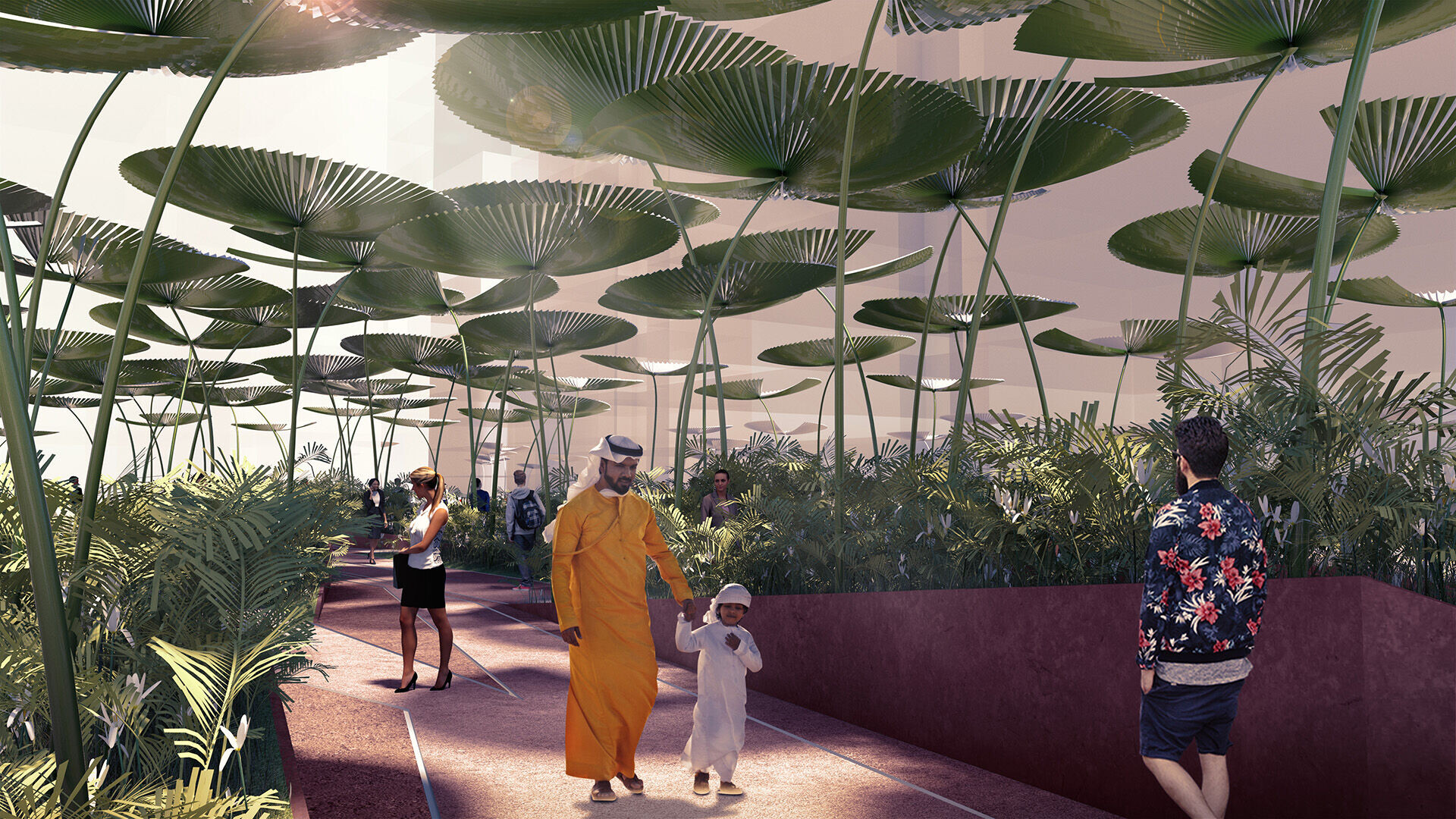
leafy is a module of artificial shading, which mimics the very basics of nature. the architecture of local plants gives inspiration to an artificial forest, that unfolds to shade at daytime and folds up to catch humidity to help nurture a real garden below, a deviant public space that celebrates the miracle rhythm of nature and brings to mind using wisely our limited resources.
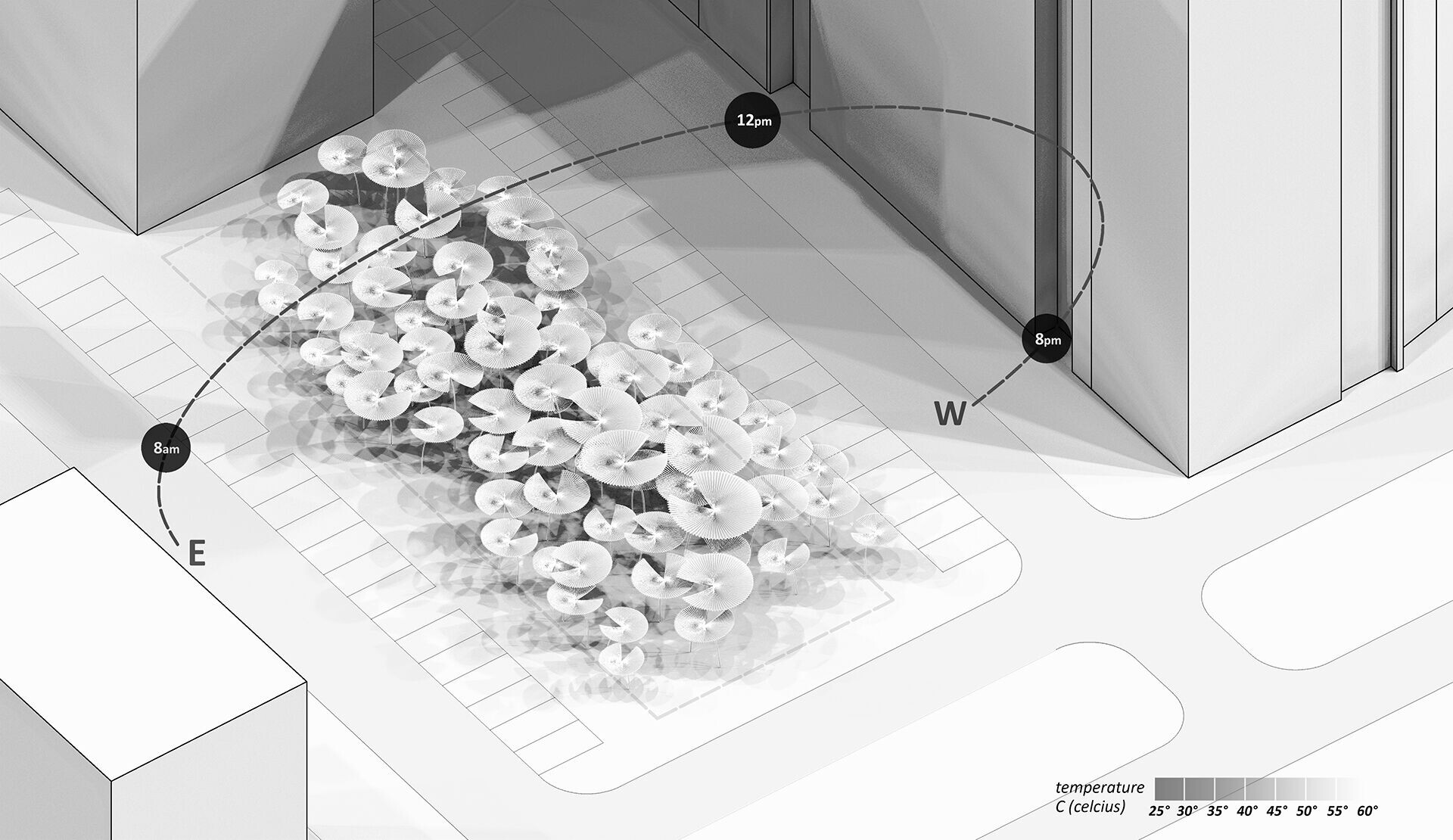
various actions are proposed by experts to be taken into consideration for different regions and climates to help reduce the heat island effect and improve the community’s resilience to heatwaves which are becoming a bigger risk to human health.
mitigation and adaptation strategies are two main approaches to reduce heat island effects, like increasing vegetation and plants, installing green, cool, or reflective roofs, cool pavements, using energy-efficient appliances, equipment..etc. However, this is not always the case. Places like Abu Dhabi face more challenges compared to any other city in more mild climates.
helping a dramatic decrease in the heat of the urban voids, leafy regenerates a new natural environment for the city without the need of traditional irrigation infrastructure, an adaptable modular system that spreads all around the city, creating comfortable public spaces and awareness to the rights of nature.
